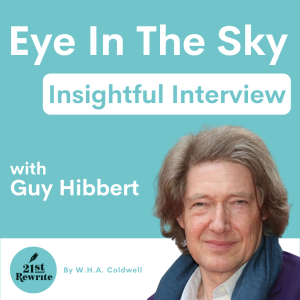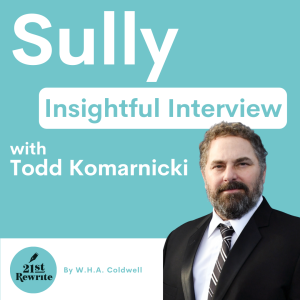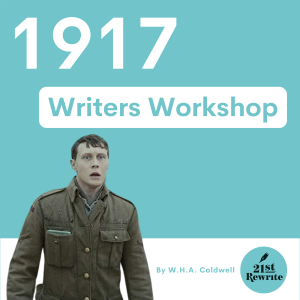Writers' Workshop - Why write a film designed to be made in the 'one-shot style? What can '1917' teach us about the storytelling benefits that can result from this approach?
This week's intro contains some thoughts on joining a writers' group. The main topic is a screenplay breakdown of Sam Mendes and Krysty Wilson-Cairns' '1917', exploring how the narrative rules work in a real-time sequential story, the themes of remembrance and the metaphor of the unknown soldier, and plenty of observations and writing tips along the way.
Bonus: Hear the epigraphs included on the first page of the screenplay!
***
Want to comment, get news and join episode discussions? Join the community on Syncify: https://syncify.fm/podcast/the-21st-rewrite. Instagram: @the21strewrite. Website contact page: https://www.the21strewrite.com/contact
***
Episode navigation:
Writers' groups (2:21)
Introduction to 1917 (9:56)
This week's big question (14:11)
Why is one-shot filmmaking considered a gimmick? (18:09)
One-shot is how we experience life (20:14)
Blake/Schofield as the Unknown Soldier and universal protagonist (22:59)
Hook the audience from the first page (25:29)
The narrative rules of sequential screenwriting (27:26)
How we interpret time in film (30:23)
1917's opening structure (32:53)
Entry into the unfamiliar world: No Man's Land (37:01)
Approaching the midpoint (41:23)
Telling two stories on-screen simultaneously (42:32)
Key points of learning from the midpoint (44:55)
How to continue after *that* midpoint (48:42)
Breaking the film's own 'one-shot' rule, and why (51:13)
The final sequences: resurrection (53:49)
Key points from the ending (57:37)
Conclusion (59:39)






